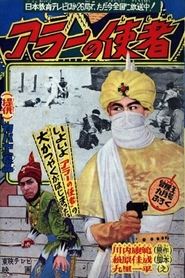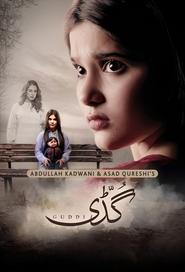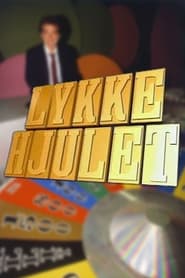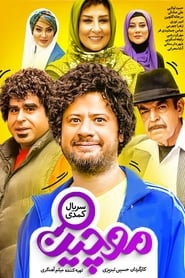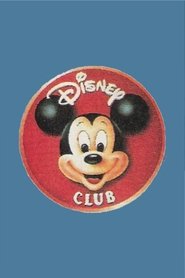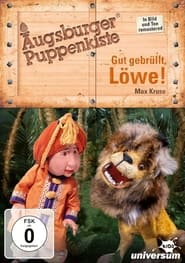Best Family TV Series - Page 294
-
Shaadi Mubarak
2020
Shaadi Mubarak
2020
A widow and an ex-film star, both in their 40s, partner up to start a wedding planning firm. Thus begins a unique tale of self-respect, friendship and love. -
Messenger of Allah
1960
Messenger of Allah
1960
Messenger of Allah, known in Japan as Allah no Shisha, is a Japanese tokusatsu superhero TV series produced by Toei Company starring a young Sonny Chiba, at the time known as Shin'ichi Chiba. It was created by writer Yasunori Kawauchi, who was also responsible for creating Moonlight Mask and Seven Color Mask. The series ran from July 7, 1960 to December 27, 1960 on NET (now TV Asahi) for a total of 26 episodes. The film for the first episode is all that is known to have survived. -
The Constellation of White Mulberry Tree
1989
First sins of early childhood, boyish adventures, excitements of the first love, imaginative mischiefs and conflicts with the world of adults… A kind of Tom Sawyer-like adventures of the two boys from a small Serbian town in the 1950s. -
Guddi
2024
Guddi
2024
Guddi is a young girl who lives a happy life with her parents. Unbeknownst to them, she can see premonitions. However, her ability soon turns into a nightmare when she foresees her parents' death, and it tragically comes true. After losing them, Guddi finds shelter with her uncle and aunt, but they oppress her. In her toughest moments, she prays for help and receives it most unexpectedly-from a doll, the last gift her parents gave her. As the doll assists Guddi through her toughest times, others begin to learn of its power. -
Wheel of Fortune
1988
Wheel of Fortune
1988
Lykkehjulet is the Danish version of the Wheel of Fortune television game show. Airing in 1988, the show was the first big American game show to be imported to Denmark and it was one of the first successes for Danish broadcaster TV2 when it became Denmark's second TV channel in 1988. The show originally used the "shopping" format of the American program in which winnings were used to buy studios prizes, such as furniture, appliances, and trips. In later years the format was changed to reflect the American version of all-cash winnings. The host during the first season was Michael Meyerheim with Pia Dresner as the letter-turning co-host. Thereafter, the show was hosted by Bengt Burg from 1989 to 2000, with a short stint by Keld Heick during the 1996-1997 season. The final season in 2001 season was hosted by Lars Herlow. The letter-turning co-hosts were Carina Jensen and Maria Hirse. The show's announcers during the run of the program were Ole Jacobsen, then Henrik Hannibal and later, Dennis Johannesson. The show ran -
Baby Bus
2019
Baby Bus
2019
-
Sing On! Spain
2020
star 6.8In this fast-paced, high-energy karaoke competition, singers from all walks of life battle it out for up to 30,000 euros! -
Kinder, Kinder
2007
Kinder, Kinder
2007
-
Melody of Love
2013
star 2.9Drama series tells the story of three families who begin to appreciate the family and regret hurting others. -
Skal vi danse?
2006
star 6Skal vi danse? is the Norwegian edition of the British television series, Strictly Come Dancing and the American television series, Dancing with the Stars. It is produced by Monster Entertainment and broadcast on TV 2 Jon Peder Olrud and Geir Bie were producers in the first season. The second and third seasons were produced by Ingvild Daae. The series premiered on TV 2 on January 15, 2006. Skal vi danse? in Norwegian means shall we dance?. Dancing celebrities with professional dancers and companies are reviewed by a panel of judges and the TV viewers. Each pair consists of a celebrity and a professional dancer and the one with the fewest votes does not participate in the next round. The series has had high ratings in Norway, with an average of between 600,000 and 700,000 viewers. The record with 733,000 viewers on average in the season premiere was reached for the first program of series 4. Only the final episodes of each series have had higher numbers. -
Sert Al-Hob
2007
Sert Al-Hob
2007
-
A Copywriter Takes Paternity Leave
2021
Yōsuke works as a copywriter for an advertising agency. His wife, Aiko, informs him that she is pregnant. Due to a case, Yōsuke asks for an unusually long six-month paternity leave. Nobody at his workplace has taken a six-month paternity leave before. A few months later, Yōsuke's daughter is born. -
Marilina: Daring to dream
2023
star 10The humble origins of Marilina Bogado, and how she became the paraguayan queen of "Cumbia"


